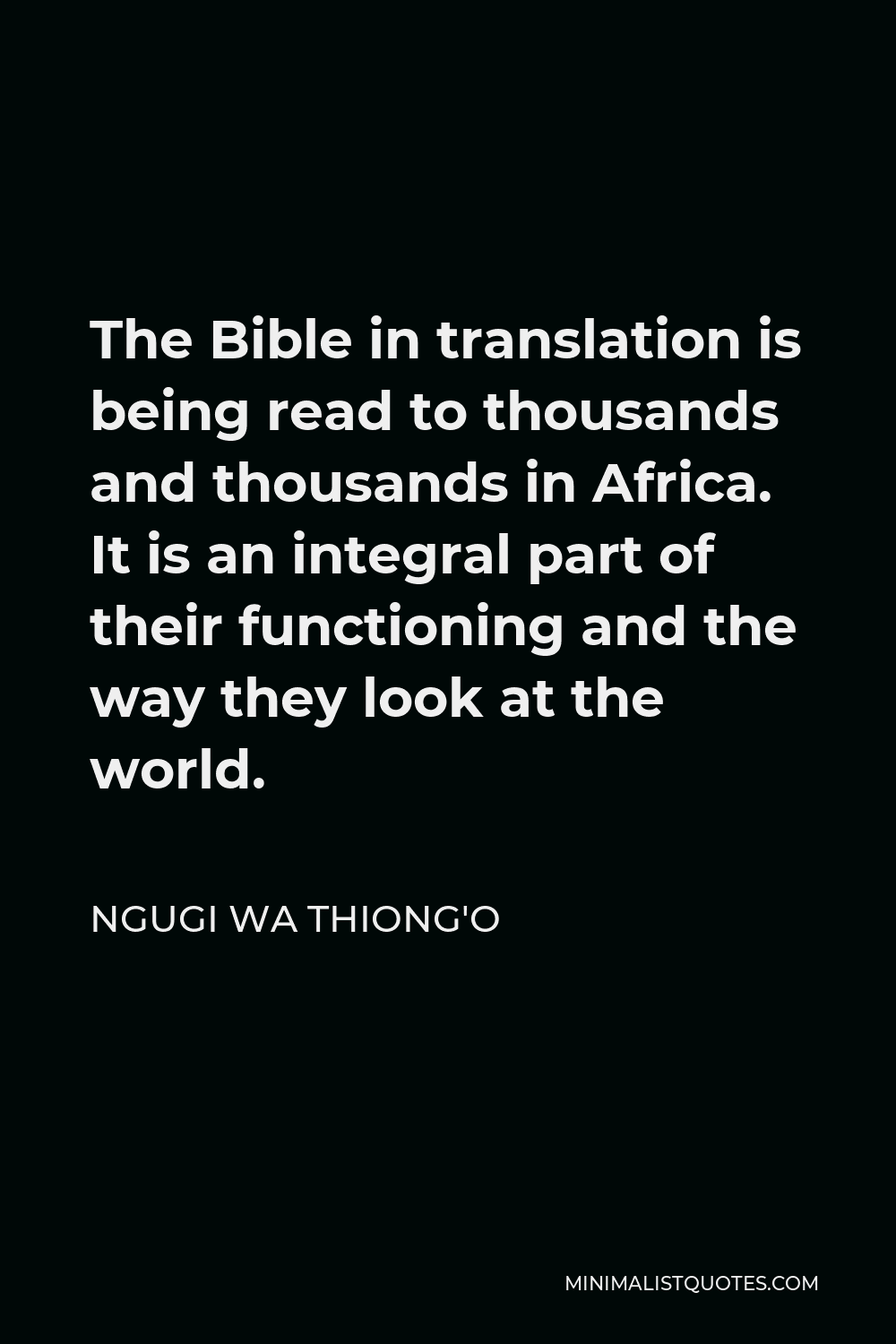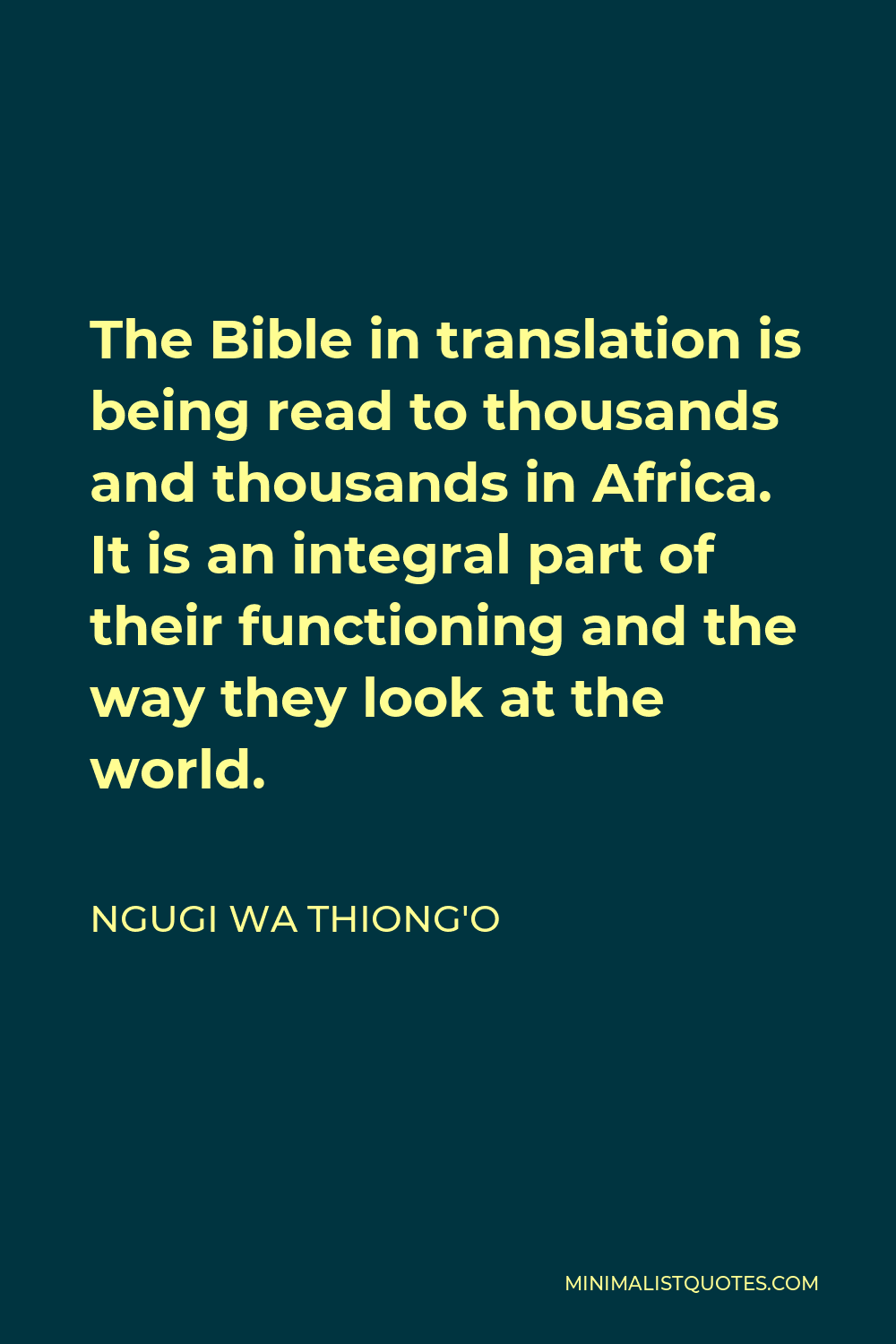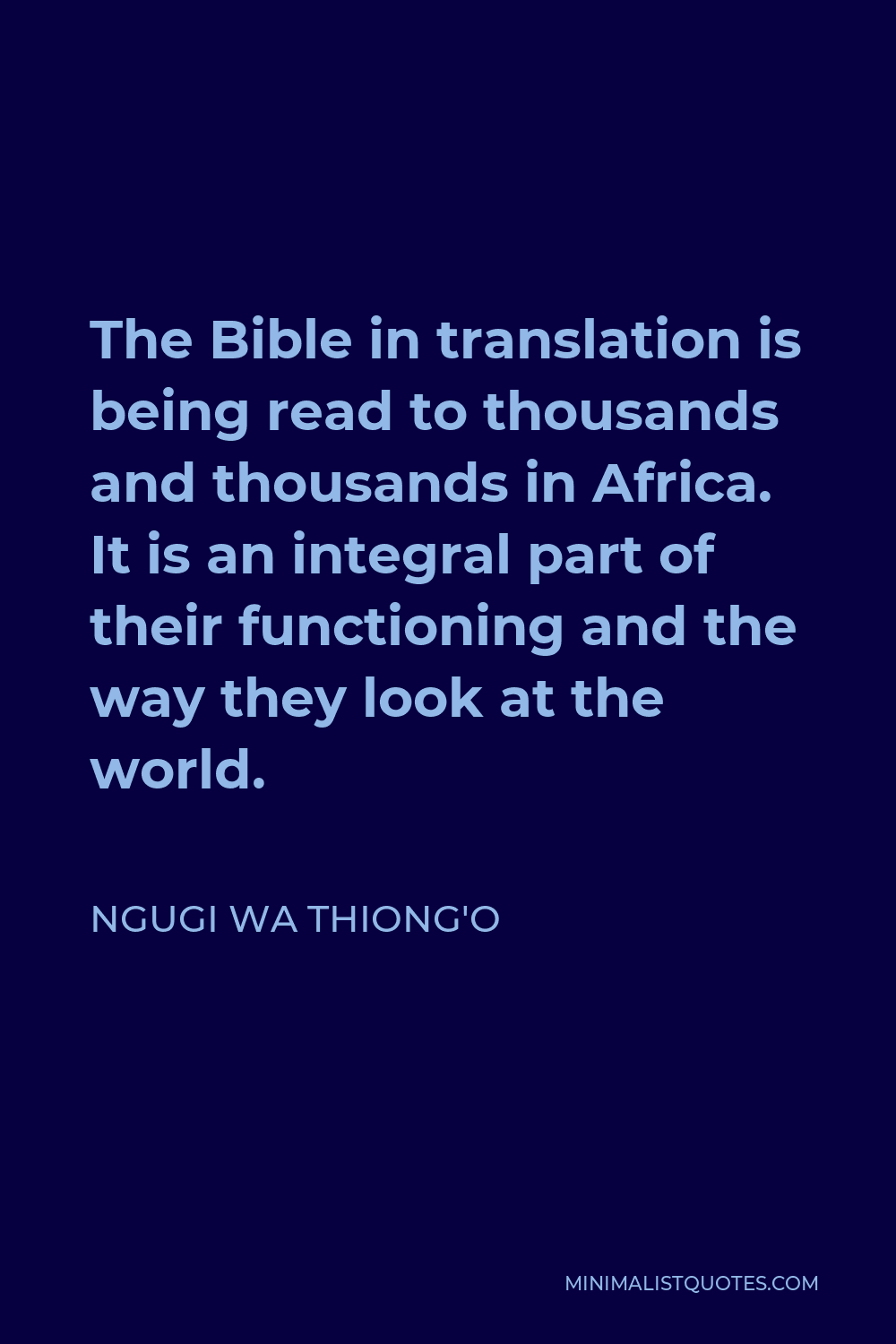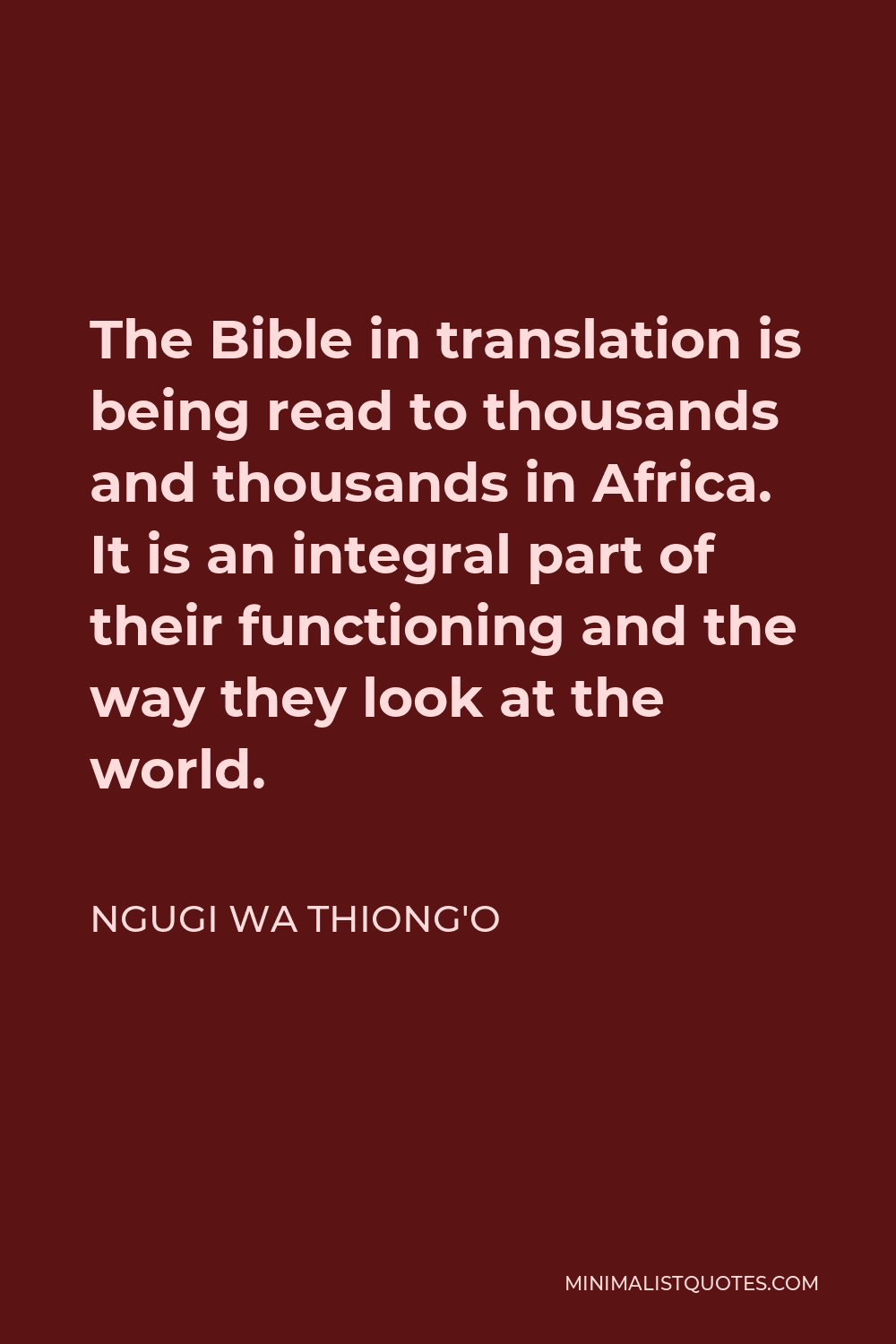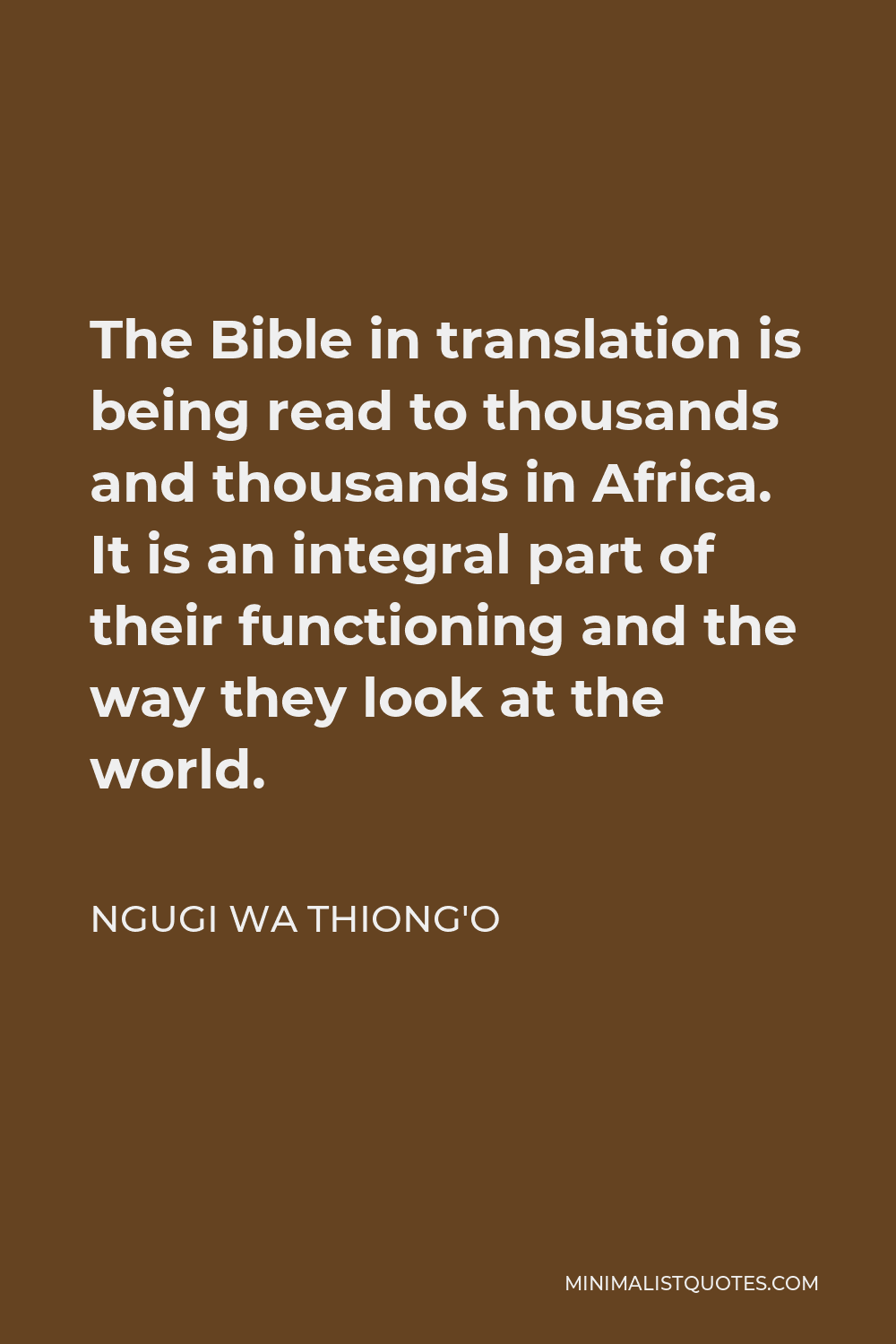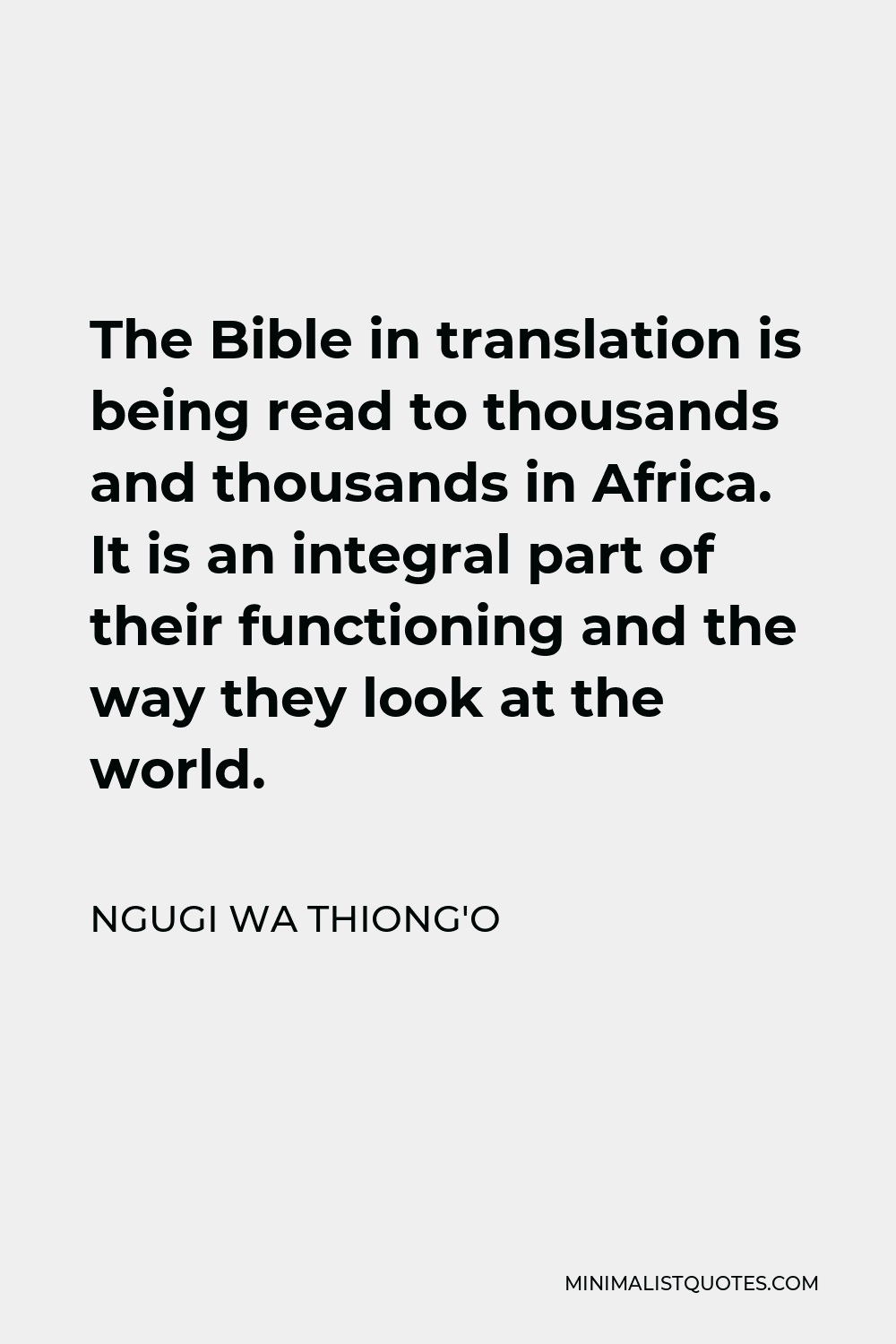Those who strive to build a protective wall around it, and those who wish to pull it down; those who seek to mould it and those committed to breaking it up; those who aim to open our eyes, to make us see the light and look to tomorrow […] and those who wish to lull us into closing our eyes
NGUGI WA THIONG'OThe Bible in translation is being read to thousands and thousands in Africa. It is an integral part of their functioning and the way they look at the world.
More Ngugi wa Thiong'o Quotes
-





![Ngugi wa Thiong'o Quote - Those who strive to build a protective wall around it, and those who wish to pull it down; those who seek to mould it and those committed to breaking it up; those who aim to open our eyes, to make us see the light and look to tomorrow […] and those who wish to lull us into closing our eyes](https://minimalistquotes.com/wp-content/uploads/2022/09/those-who-strive-to-build-a-protective-wall-around-683x1024.jpg)

-





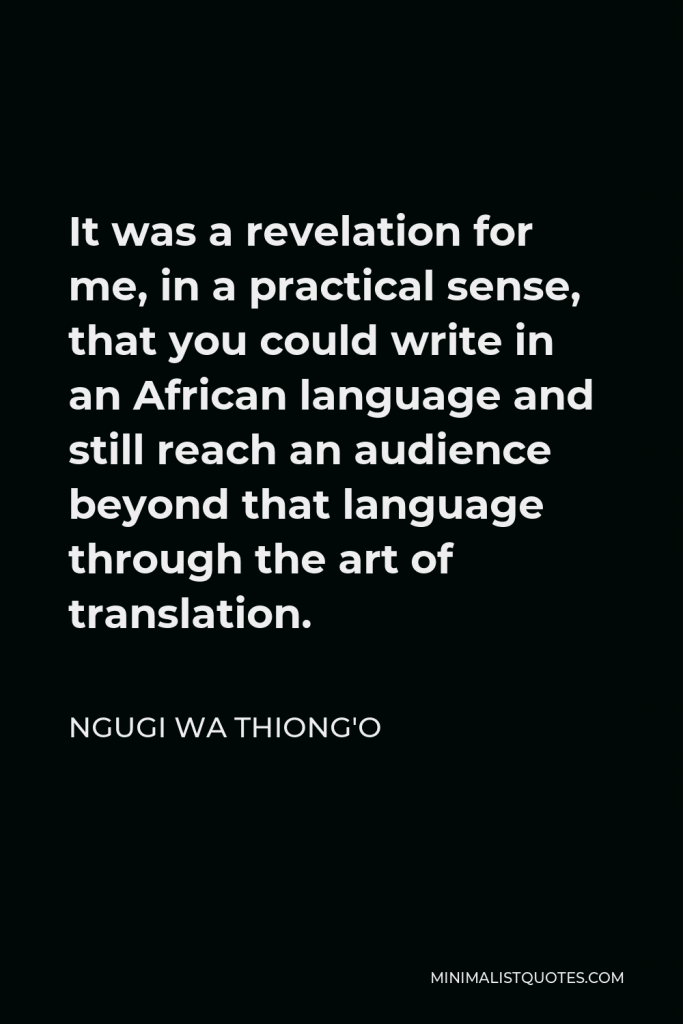

It was a revelation for me, in a practical sense, that you could write in an African language and still reach an audience beyond that language through the art of translation.
NGUGI WA THIONG'O -





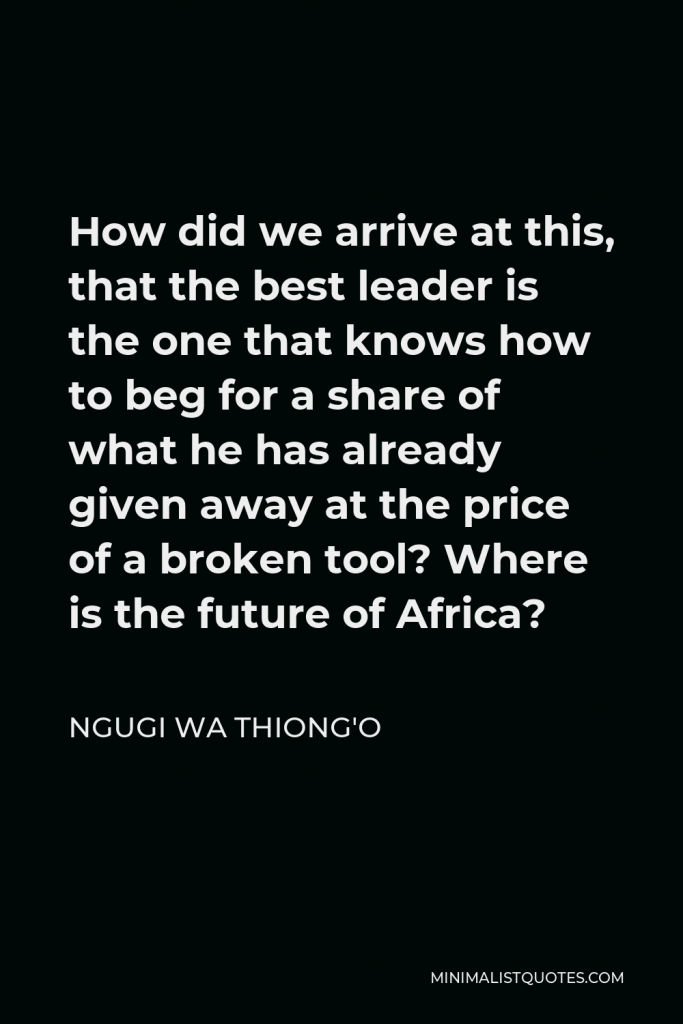

How did we arrive at this, that the best leader is the one that knows how to beg for a share of what he has already given away at the price of a broken tool? Where is the future of Africa?
NGUGI WA THIONG'O -





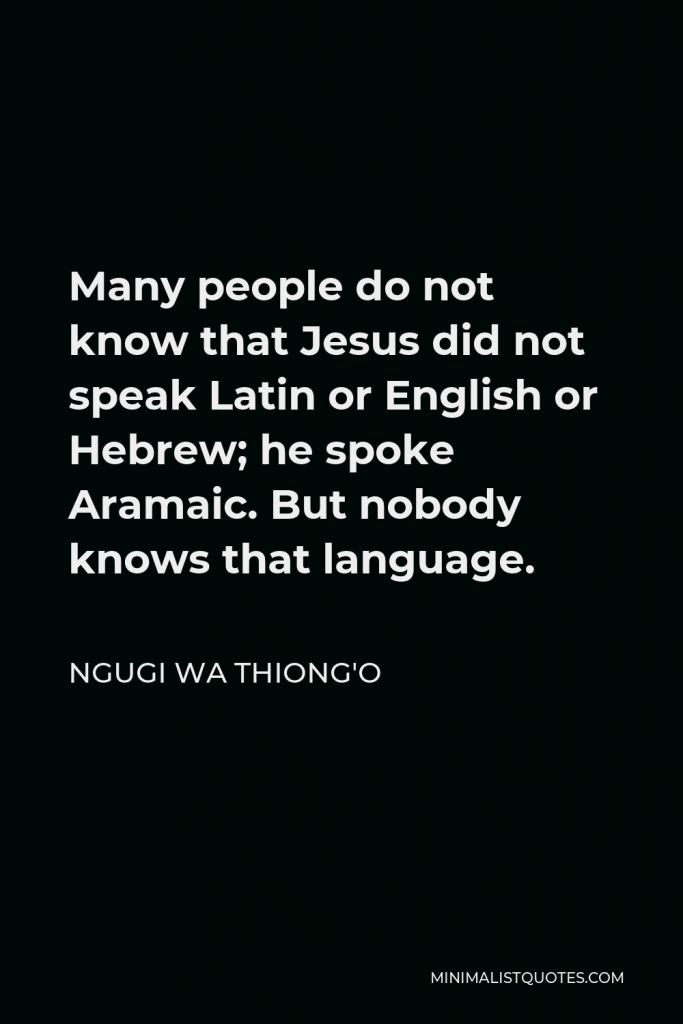

Many people do not know that Jesus did not speak Latin or English or Hebrew; he spoke Aramaic. But nobody knows that language.
NGUGI WA THIONG'O -





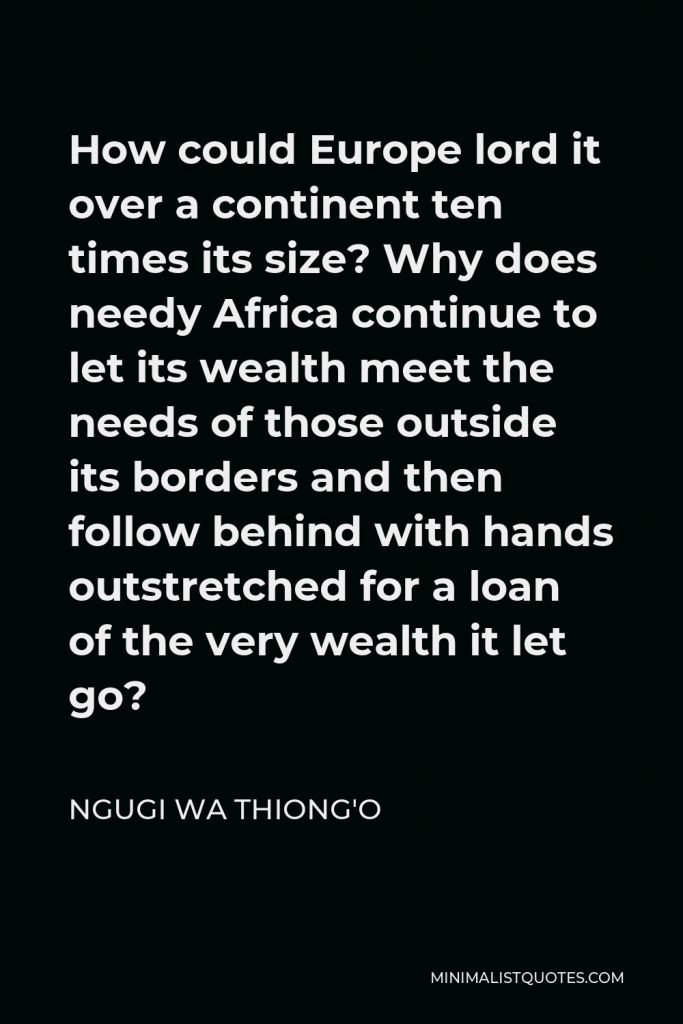

How could Europe lord it over a continent ten times its size? Why does needy Africa continue to let its wealth meet the needs of those outside its borders and then follow behind with hands outstretched for a loan of the very wealth it let go?
NGUGI WA THIONG'O -





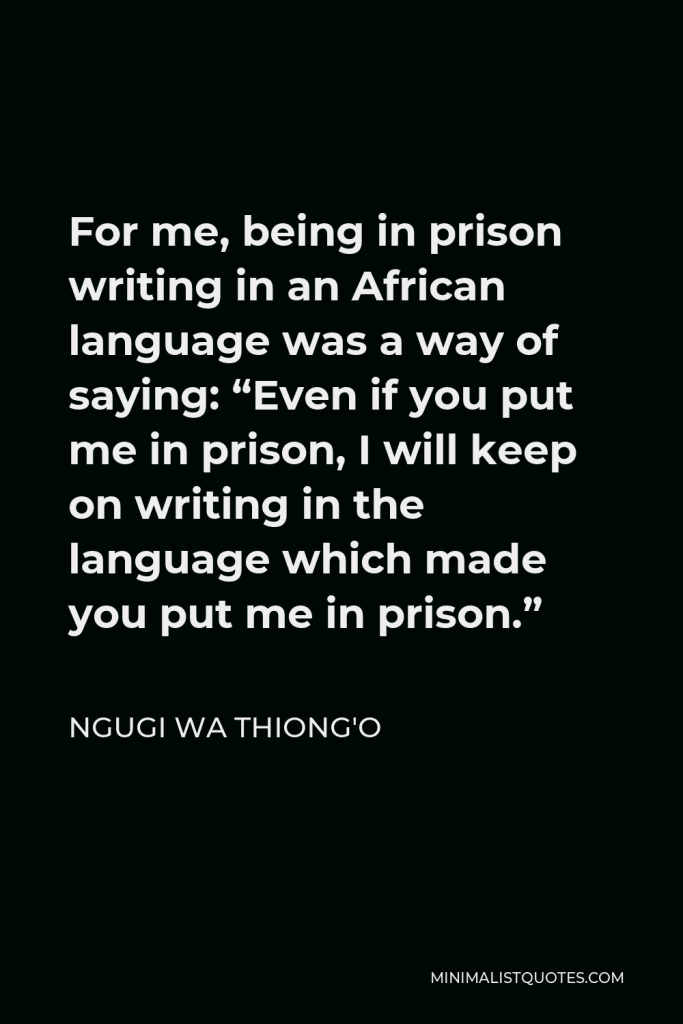

For me, being in prison writing in an African language was a way of saying: “Even if you put me in prison, I will keep on writing in the language which made you put me in prison.”
NGUGI WA THIONG'O -





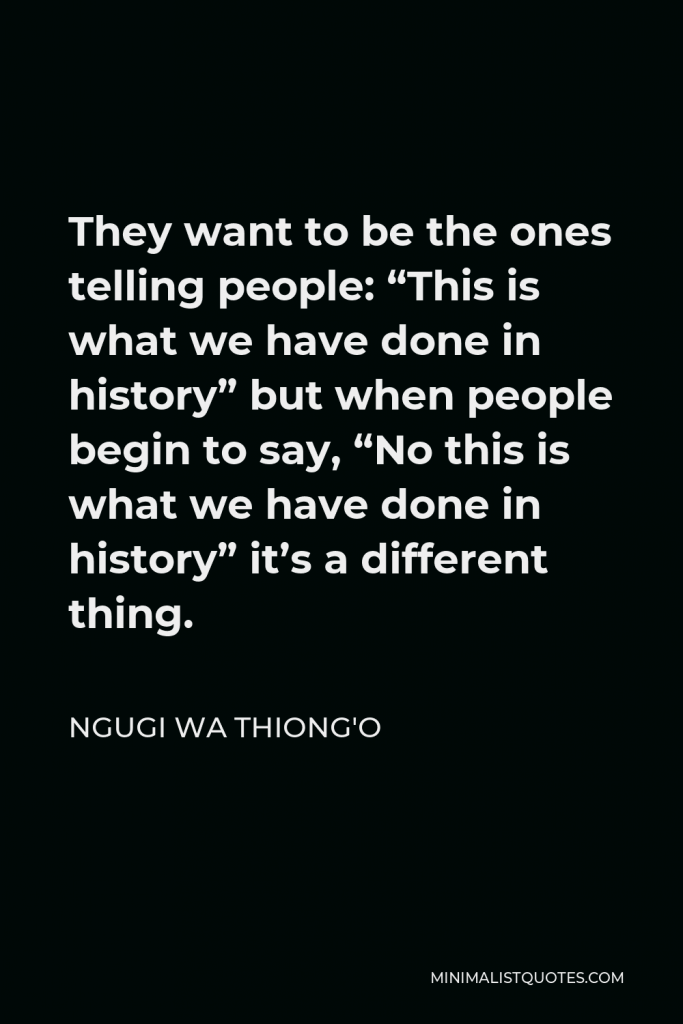

They want to be the ones telling people: “This is what we have done in history” but when people begin to say, “No this is what we have done in history” it’s a different thing.
NGUGI WA THIONG'O -





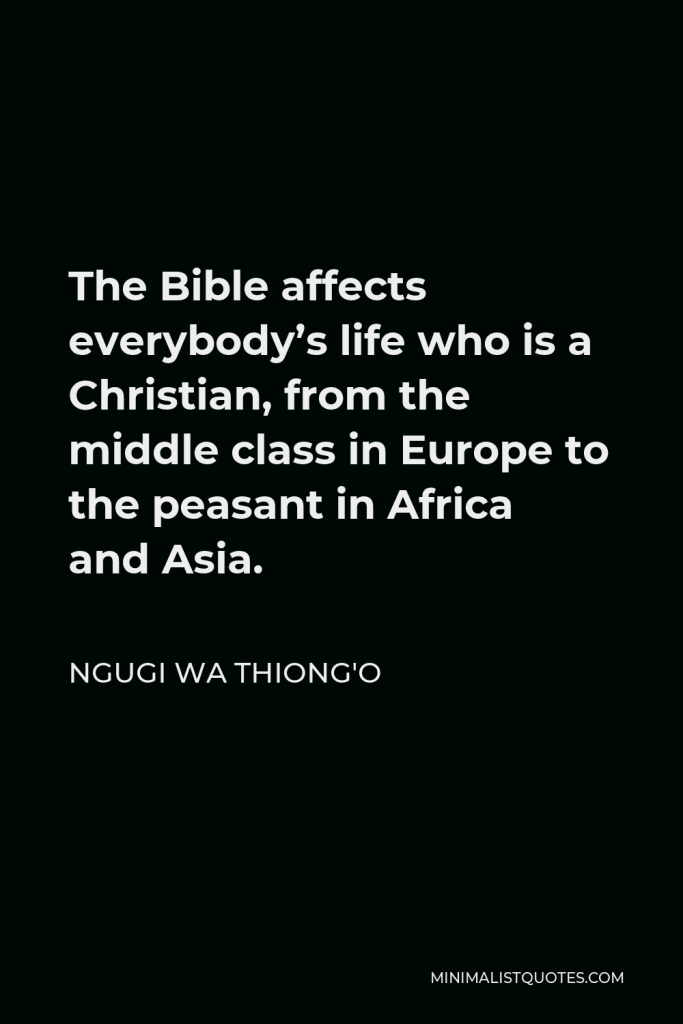

The Bible affects everybody’s life who is a Christian, from the middle class in Europe to the peasant in Africa and Asia.
NGUGI WA THIONG'O -





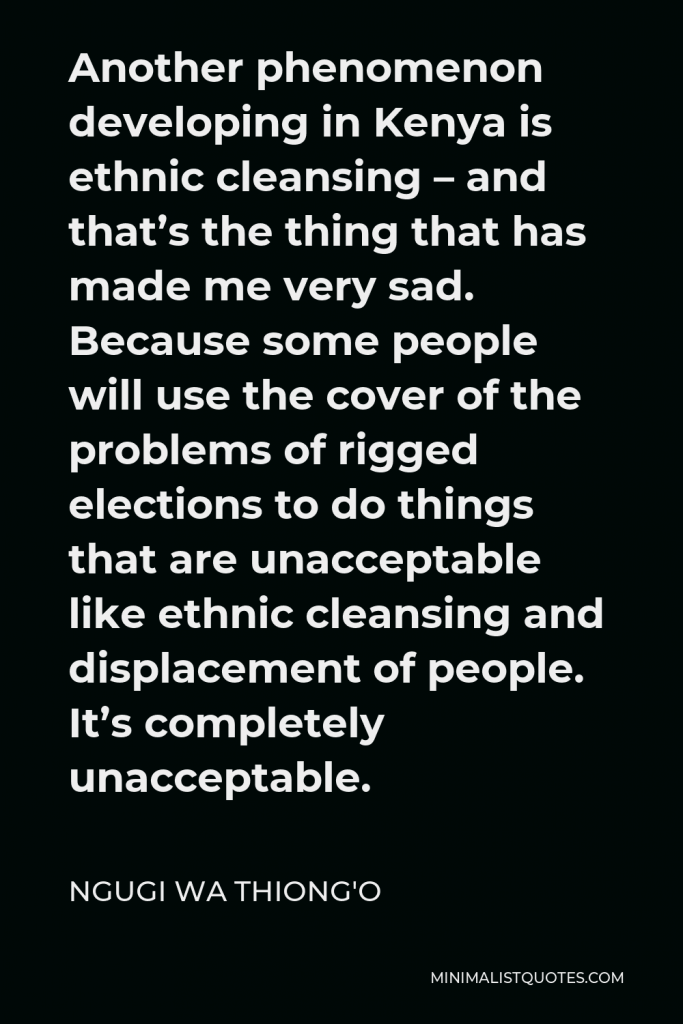

Another phenomenon developing in Kenya is ethnic cleansing – and that’s the thing that has made me very sad. Because some people will use the cover of the problems of rigged elections to do things that are unacceptable like ethnic cleansing and displacement of people. It’s completely unacceptable.
NGUGI WA THIONG'O -





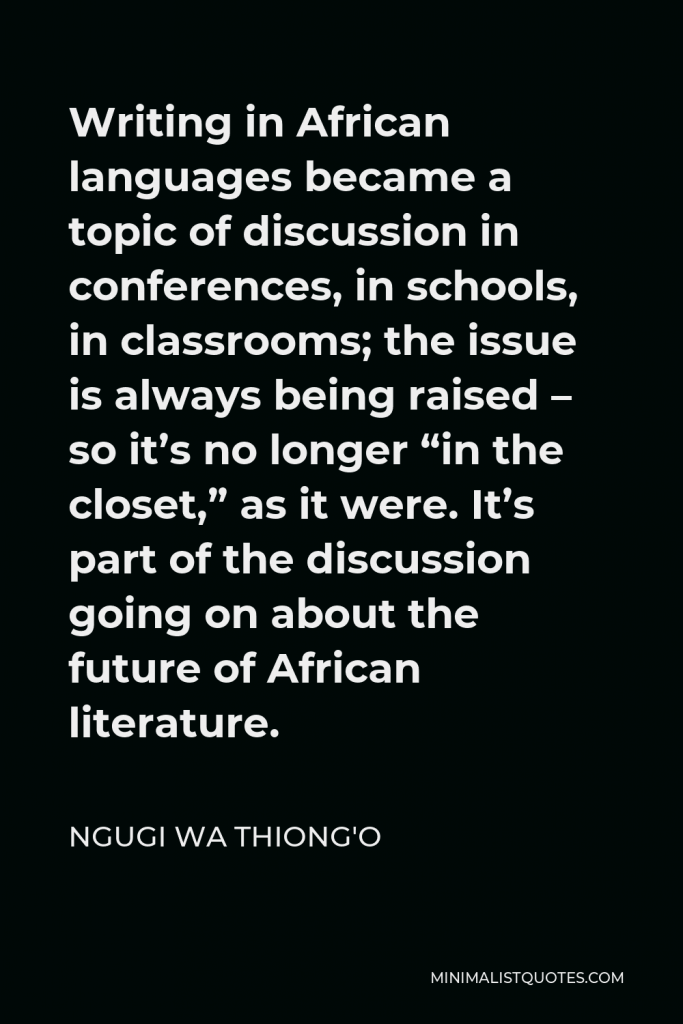

Writing in African languages became a topic of discussion in conferences, in schools, in classrooms; the issue is always being raised – so it’s no longer “in the closet,” as it were. It’s part of the discussion going on about the future of African literature.
NGUGI WA THIONG'O -





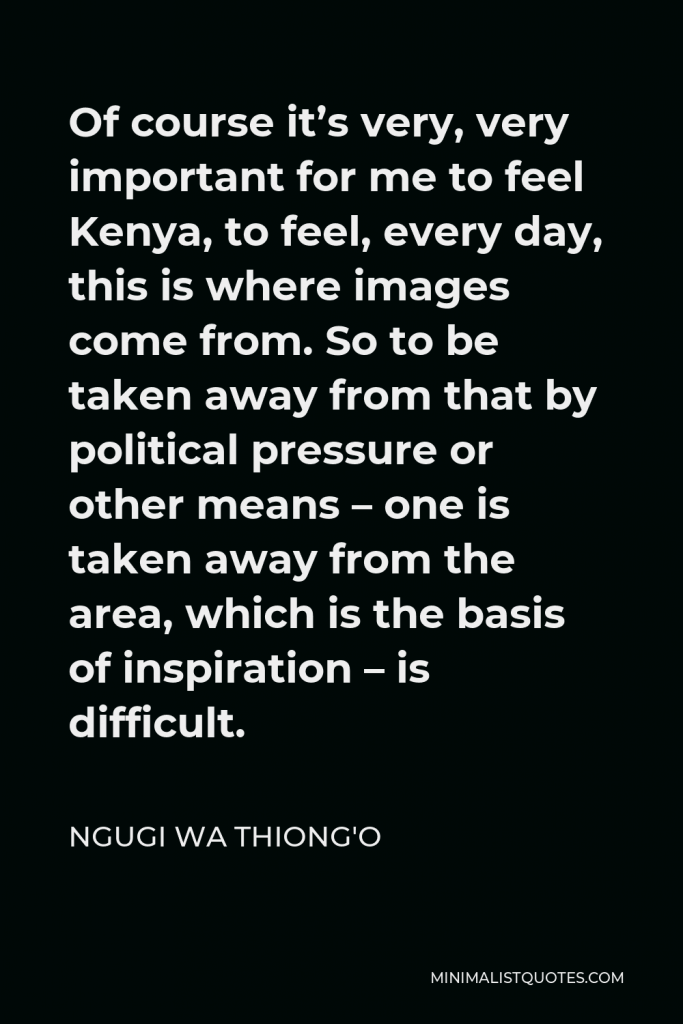

Of course it’s very, very important for me to feel Kenya, to feel, every day, this is where images come from. So to be taken away from that by political pressure or other means – one is taken away from the area, which is the basis of inspiration – is difficult.
NGUGI WA THIONG'O -





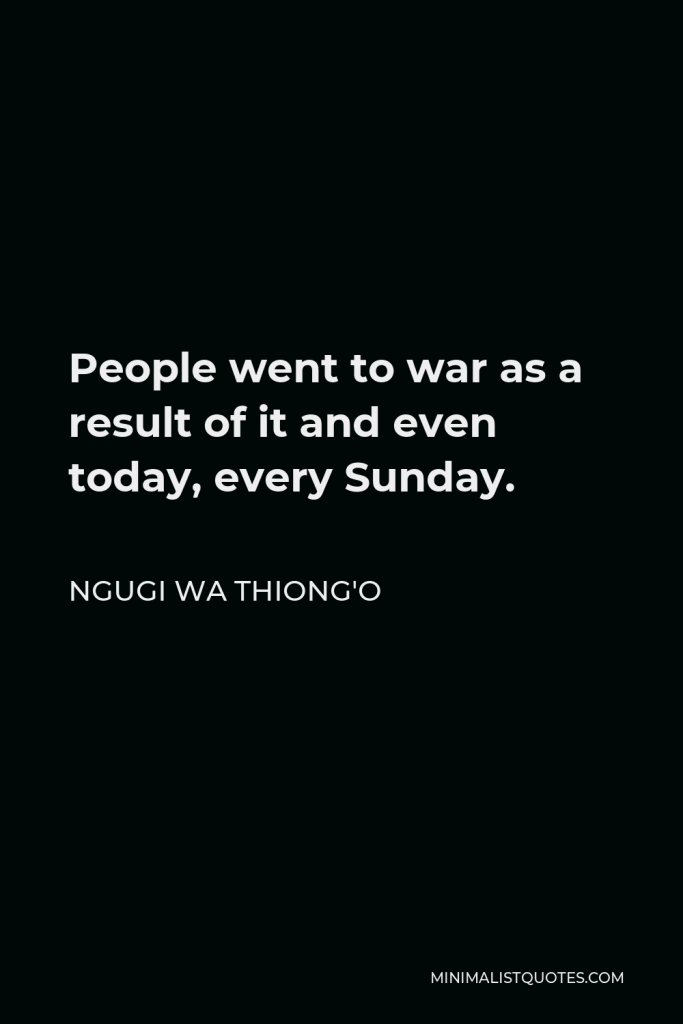

People went to war as a result of it and even today, every Sunday.
NGUGI WA THIONG'O -





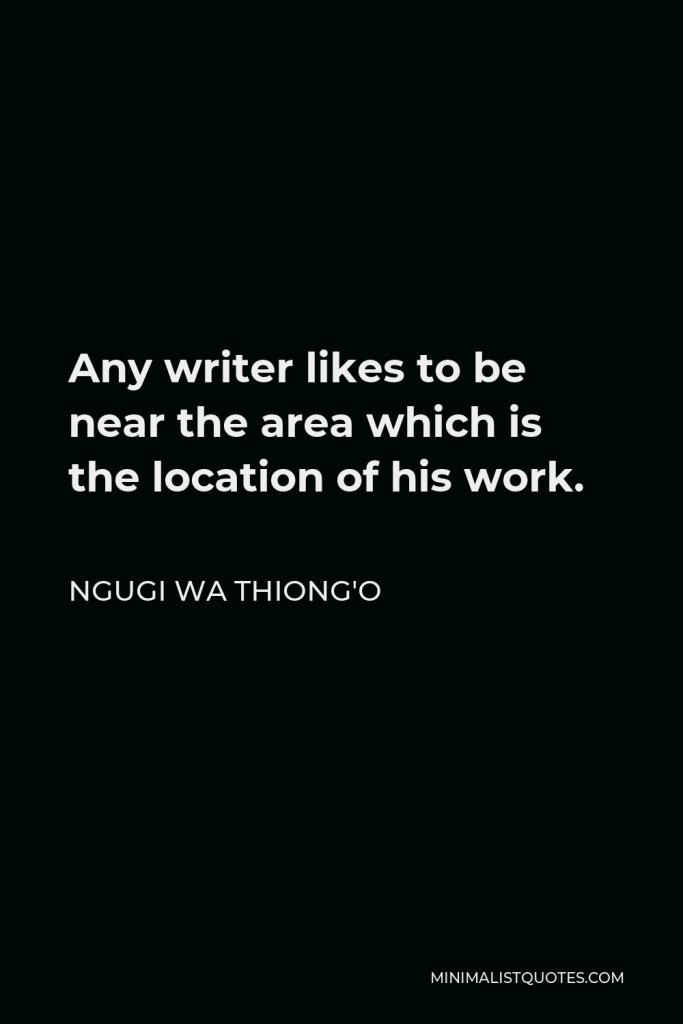

Any writer likes to be near the area which is the location of his work.
NGUGI WA THIONG'O -





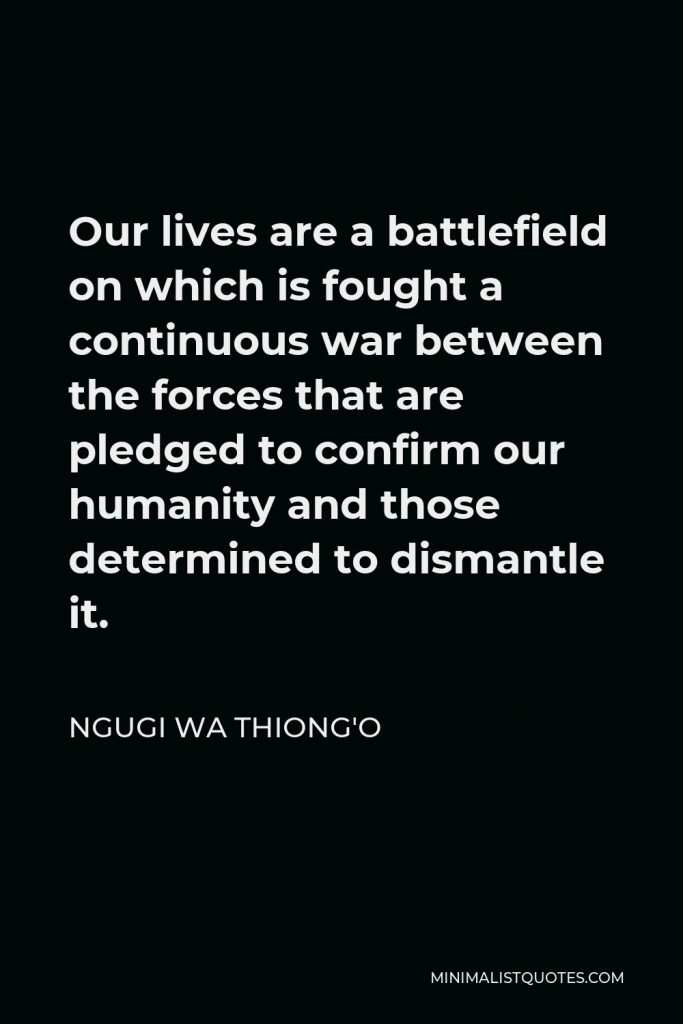

Our lives are a battlefield on which is fought a continuous war between the forces that are pledged to confirm our humanity and those determined to dismantle it.
NGUGI WA THIONG'O -





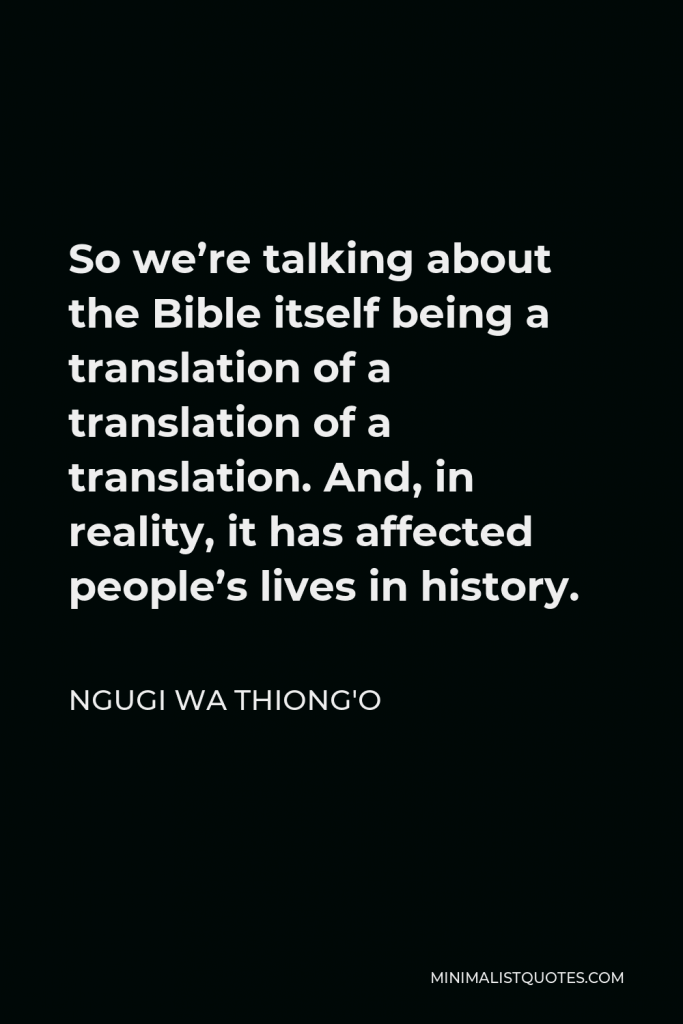

So we’re talking about the Bible itself being a translation of a translation of a translation. And, in reality, it has affected people’s lives in history.
NGUGI WA THIONG'O -





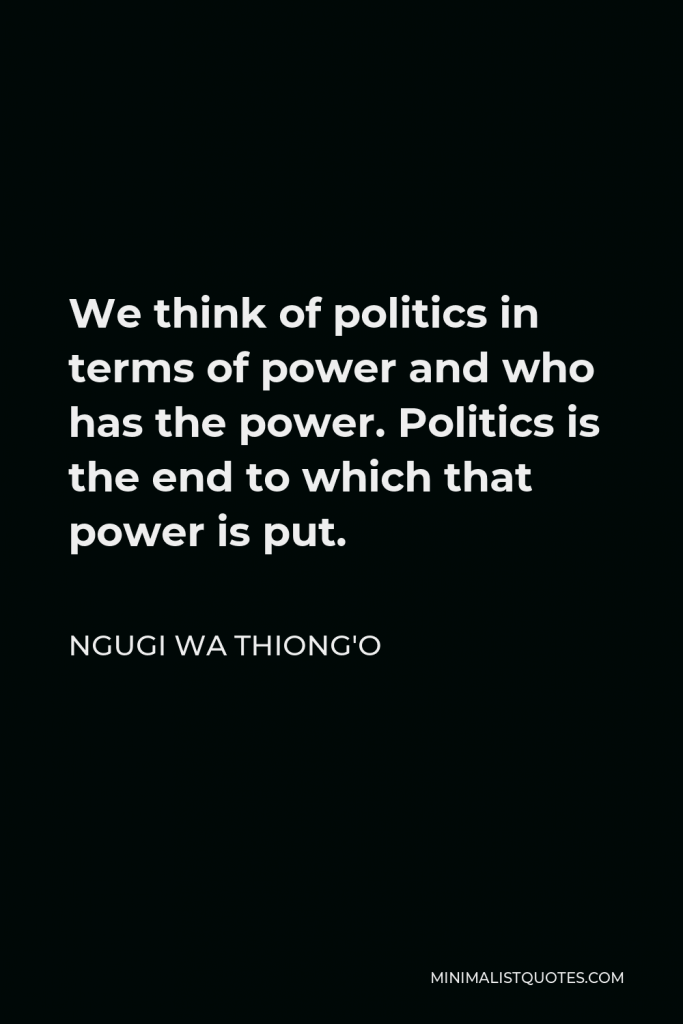

We think of politics in terms of power and who has the power. Politics is the end to which that power is put.
NGUGI WA THIONG'O
